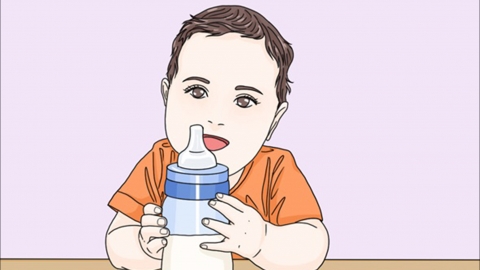What medicine is effective for children's indigestion?
Generally, indigestion in children may be caused by improper feeding, abdominal coldness, lactose intolerance, gastritis, or congenital hypothyroidism. It is recommended to seek timely medical attention and follow the guidance of a physician when using medications such as compound eosinophilic bacillus tablets, viable spore-forming bacillus powder, amoxicillin granules, clarithromycin granules, and calcium carbonate D3 granules for better therapeutic effects. Detailed explanations are as follows:

1. Improper Feeding
A child's digestive system is not yet fully developed. If the child is fed too much or too quickly, or if the type of food changes suddenly, exceeding their digestive capacity, indigestion can easily occur. Usually, no medication is necessary. It is recommended to adjust feeding methods, follow the principle of small, frequent meals, schedule feeding times appropriately, and gradually introduce new foods.
2. Abdominal Coldness
Inadequate abdominal warmth, especially during sleep when the child may kick off the covers, can lead to abdominal coldness, causing gastrointestinal motility disorders. Either excessive or reduced intestinal motility is unfavorable for normal digestion and absorption of food, thus causing indigestion. Typically, no medication is required. It is important to keep the abdomen warm in daily life and a hot water bag can be used for abdominal heat application.
3. Lactose Intolerance
Children may lack lactase or have insufficient enzyme activity, making it difficult to fully digest lactose present in breast milk or cow's milk. Lactose in the intestines is fermented and decomposed by bacteria, producing large amounts of gas and acidic substances that irritate the intestines, leading to symptoms of indigestion. It may also be accompanied by bloating and diarrhea. Patients can follow their physician's guidance to use medications such as compound eosinophilic bacillus tablets, viable spore-forming bacillus powder, and compound pepsin powder for treatment.
4. Gastritis
Gastritis is usually associated with Helicobacter pylori infection, irregular eating habits, long-term consumption of irritating foods, and other factors, which may cause inflammation of the gastric mucosa. Inflammation affects the stomach's normal digestive function, leading to dysregulation of gastric acid secretion, slowed gastric motility, and prolonged food retention in the stomach, thereby causing indigestion. It may also be accompanied by symptoms such as nausea and vomiting. Patients need to follow medical instructions to use medications such as amoxicillin granules, clarithromycin granules, colloidal bismuth pectin capsules, etc., for treatment.
5. Congenital Hypothyroidism
Underdevelopment of the thyroid gland, impaired thyroid hormone synthesis, and other factors may lead to insufficient secretion of thyroid hormones. Thyroid hormones are crucial for body metabolism and growth and development. Insufficient secretion will slow gastrointestinal motility and reduce digestive enzyme secretion, thus causing the aforementioned symptoms. It may also cause constipation and loss of appetite. Patients can follow their physician's advice to use medications such as levothyroxine sodium tablets, thyroid tablets, and calcium carbonate D3 granules for treatment.
In daily life, it is important to develop good feeding habits, maintain regular and measured feeding, avoid overfeeding and sudden changes in food types; encourage children to participate in more outdoor activities to enhance their physical condition; and ensure adequate sleep for children, which is beneficial for physical recovery and normal functioning of the digestive system.




